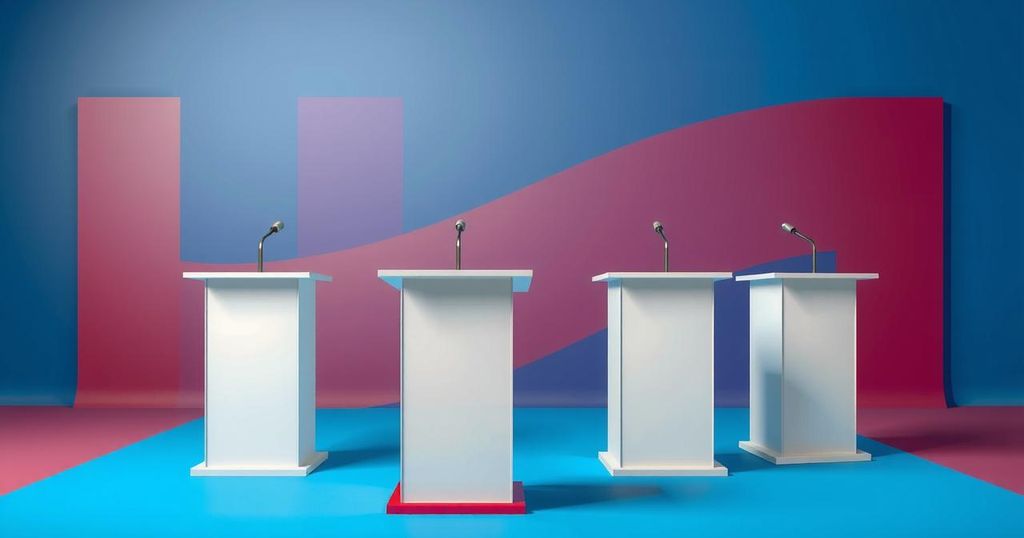Duterte’s ICC Arrest Heightens Stakes Ahead of Philippine Midterm Elections

Former Philippine President Rodrigo Duterte’s arrest by the ICC has complicated the electoral landscape ahead of the May 2025 midterms. The event heightens tensions between the Duterte and Marcos families, previously allies. Sara Duterte’s impeachment adds uncertainty to her political future, while candidates gauge public sentiment regarding the arrest, possibly affecting their strategies as they prepare for the elections.
Former Philippine President Rodrigo Duterte’s recent arrest by the International Criminal Court (ICC) for alleged crimes against humanity has intensified the political climate ahead of the May 2025 midterm elections. Analysts assert that Duterte’s arrest, which occurred on March 11, aligns with a series of political challenges, including the impeachment of his daughter, Vice President Sara Duterte.
The May 12 elections were already projected as a contest between the influential Duterte and Marcos families. However, Duterte’s detention introduces an unpredictable element, potentially shifting power dynamics between once-allied political factions. Political analyst Jean Franco from the University of the Philippines suggested that the Marcos coalition might escalate efforts to curb the Duterte political dynasty due to fear of retaliation from the Dutertes.
Historically, the collaboration between the Dutertes and Marcoses resulted in substantial electoral successes; however, this alliance crumbled under growing demands for ICC investigations into Duterte’s administration’s violent drug policies. Despite political turmoil, President Ferdinand Marcos Jr. is well-positioned with resources and political machinery leading into the elections, as the Dutertes aim to assert their dominance in Davao City through multiple family candidacies.
The stakes remain high as Sara Duterte’s political future appears uncertain due to her impeachment for alleged misconduct, particularly regarding accusations against President Marcos. Political scholars, including Aries Arugay, highlight the unpredictable nature of the upcoming elections, declaring “nothing is off the table.” The potential for Duterte to challenge the Marcos administration raises concerns of significant political strife.
Candidates are now wary of shifting public sentiment regarding Duterte’s arrest and are aligning their campaigns accordingly. The recent popularity of Duterte’s former aide, Sen. Christopher “Bong” Go, indicates a continued presence of Duterte’s influence, while speculation mounts regarding Sen. Ronald “Bato” dela Rosa’s political future amidst the ICC investigation. Dela Rosa has controversially indicated his unwillingness to surrender should charges arise, prompting discussions about the psychological impact of such elections on other candidates.
Current polling data reflects a noteworthy divide in public opinion regarding Duterte’s actions during his presidency, with a significant approval rating for the ICC case against him. Despite historical popularity, there is skepticism surrounding Sara Duterte’s prospects in the 2028 presidential elections, as various legal challenges loom over her candidacy. Analysts caution against premature conclusions, noting the precarious state of political dynamics in the years leading up to the elections, which may dramatically impact the Duterte legacy.
The arrest of former President Rodrigo Duterte has dramatically altered the political landscape in the Philippines as the country approaches the May 2025 midterm elections. The rivalry between the Duterte and Marcos families has intensified, with significant implications for both the upcoming elections and future political prospects for Sara Duterte. Current sentiments in the electorate are in flux, potentially reshaping the dynamics further towards the 2028 presidential race.
Original Source: www.benarnews.org







